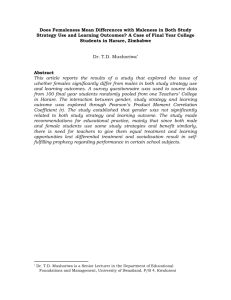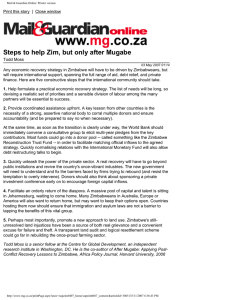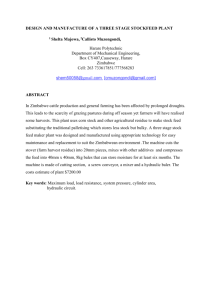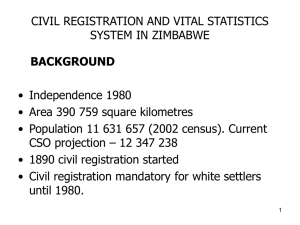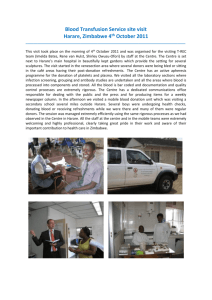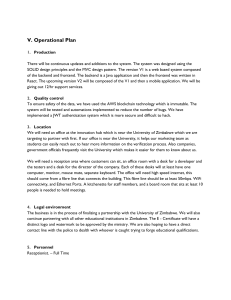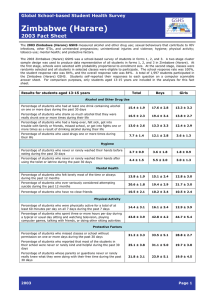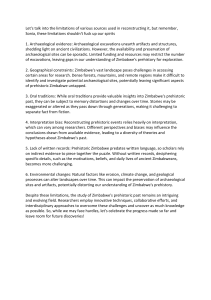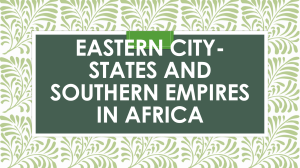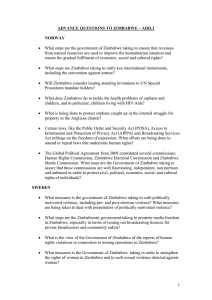Bill Derman (Department of International ... Norwegian University of the Life Sciences) and Anne Hellum (Faculty...
advertisement
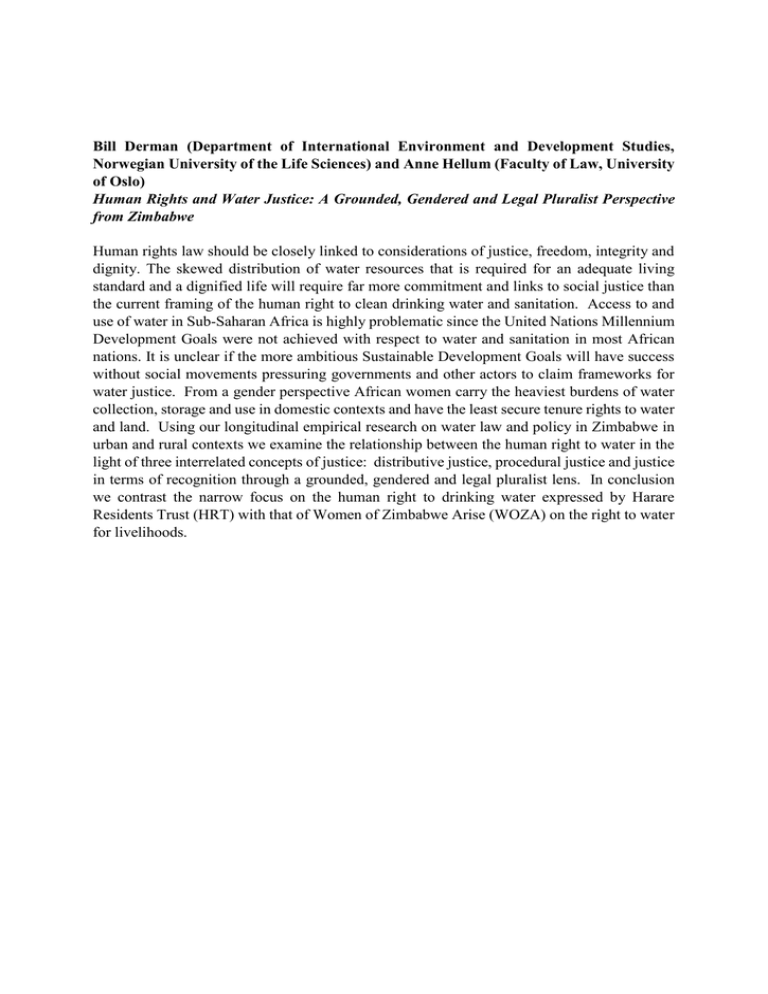
Bill Derman (Department of International Environment and Development Studies, Norwegian University of the Life Sciences) and Anne Hellum (Faculty of Law, University of Oslo) Human Rights and Water Justice: A Grounded, Gendered and Legal Pluralist Perspective from Zimbabwe Human rights law should be closely linked to considerations of justice, freedom, integrity and dignity. The skewed distribution of water resources that is required for an adequate living standard and a dignified life will require far more commitment and links to social justice than the current framing of the human right to clean drinking water and sanitation. Access to and use of water in Sub-Saharan Africa is highly problematic since the United Nations Millennium Development Goals were not achieved with respect to water and sanitation in most African nations. It is unclear if the more ambitious Sustainable Development Goals will have success without social movements pressuring governments and other actors to claim frameworks for water justice. From a gender perspective African women carry the heaviest burdens of water collection, storage and use in domestic contexts and have the least secure tenure rights to water and land. Using our longitudinal empirical research on water law and policy in Zimbabwe in urban and rural contexts we examine the relationship between the human right to water in the light of three interrelated concepts of justice: distributive justice, procedural justice and justice in terms of recognition through a grounded, gendered and legal pluralist lens. In conclusion we contrast the narrow focus on the human right to drinking water expressed by Harare Residents Trust (HRT) with that of Women of Zimbabwe Arise (WOZA) on the right to water for livelihoods.
